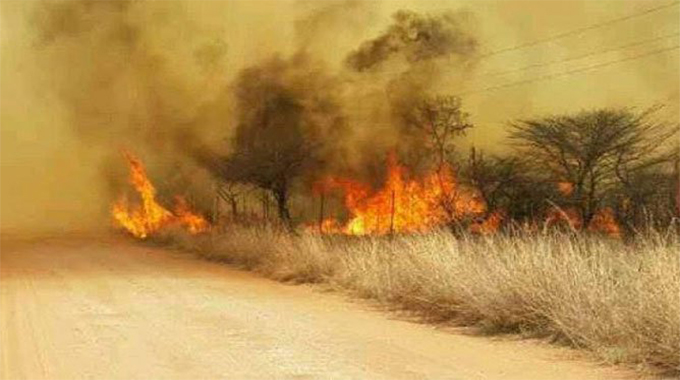200 000 Matabeleland farmers to get fertiliser
Sikhumbuzo Moyo, Senior Reporter
GOVERNMENT has so far distributed 28 000 tonnes of basal fertiliser out of 150 000 tonnes to the Grain Marketing Board (GMB) depots for the 2022/23 summer cropping season under the Climate-Proofed Presidential Input Scheme, popularly known as Intwasa/Pfumvudza.
Out of the distributed fertiliser, 18 050 tonnes were delivered in the Matabeleland region where more than 200 000 farmers are set to benefit.
The Pfumvudza/Intwasa programme is set to benefit 3,5 million farmers in communal, A1, small-scale commercial farming, old resettlement and peri-urban farming sectors in the production of cereals, oilseeds and legumes, including a special smaller pack for 500 000 urban farmers.
The programme is supporting five Pfumvudza/Intwasa plots, each measuring 39m x 16m in size, per farming household.
In Matabeleland North, Binga District, which has 40 000 farmers benefiting under the programme, will receive 2 000 tonnes while Lupane with 30 000 households will get 1 500 tonnes of fertiliser.
Umguza, Tsholotsho and Nkayi districts with a total of 75 000 households will each receives 1 250 tonnes while Bubi and Hwange districts with combined number of 40 000 households are set to get 1 000 tonnes each.
In Bulawayo, 12 000 households will receive 600 tonnes while in Matabeleland South, 35 000 households in Gwanda District will receive 1 750 tonnes with 26 000 households in Insiza getting 1 300 tonnes.
Matobo, Beitbridge and Bulilima districts, which have a total of 75 000 households benefiting under programme getting 1 250 tonnes each.
Umzingwane and Mangwe districts, which have 40 000 households will each receive 1 000 tonnes. Agricultural Advisory and Rural Development Services chief director Professor Obert Jiri said all inputs under the Presidential Input Scheme are in the process of being transported to all GMB depots throughout the county ahead of the 2022/23 summer cropping season.
“We have started moving inputs to GMB depots around the country. It is a continuous process and we are ready to supply our farmers right up to ward level. In terms of fertiliser, we have so far distributed 28 000 tonnes out of the 150 000 tonnes in our stock.,” he said.
Prof Jiri said more farmers are still registering to secure inputs under the Intwasa/Pfumvudza scheme with farmers expected to receive inputs by end of the month.
Under the programme, each farming household will get an input package comprising 10kg maize seed, 5kg sorghum, 2kg pearl millet, 5kg soya beans, 2kg sunflower/castor beans (castor bean will be inter-cropped in the Intwasa crops) and 5kg sugar beans or 5kg cowpeas or roundnuts. The seed types and varieties will depend on the farming region.
Prof Jiri said this year, the distribution of inputs under Pfumvudza will be done according to agro-ecological regions to maximise on the potential of the programme given the high possibility of erratic rains in terms of commencement, distribution and cessation.

Pfumvudza.
“The crop input package will be agro-ecological region specific for maize, sorghum, pearl millet, soya beans, sunflower, groundnuts, dry beans, African peas and vegetables. The package will also include water retention enhancers, herbicides package for three plots as well as fall armyworm remedy,” he said.
In low rainfall agro-ecological regions, three plots will be put under cereals maize, sorghum and pearl millet. The maize plot is for household food and the other two plots under traditional grains for commercial sale.
Valley Seeds commercial director Mr Tich Mapongah said they have enough stocks for the farmers.
“We are all ready and we have enough seeds in stock such as your wheat, sorghum, millet sunflower, peas and so forth. Groundnuts seeds are a bit low in stock due to the high demand, but we are working on that to make sure that farmers get the product,” he said.
Valley Seeds are the main distributors of seed packs for the Intwasa/Pfumvudza programme.
In June this year Government, through the Department of Agricultural Engineering, Mechanisation and Soil Conservation in the Ministry of Lands, Agriculture, Fisheries, Water and Rural Development launched the Umfolo/Makandiwa Soil and Water Conservation blitz in Mashonaland West province as part of the Agriculture and Food Systems Transformation Strategy that seeks to achieve an US$8,5 billion agriculture economy by 2025.
The soil and water conservation blitz will primarily involve the national pegging and construction of mechanical contours (imfolo) on two million hectares of arable and non-arable land.
It is based on the realisation that as part of a trajectory of attaining Vision 2030, improving agriculture production and productivity for the attainment of national and household food and nutrition security remained top priority for the Second Republic.
Soil is one of the existentially vital resources for humans, animals and plants. It provides habitats for soil organisms, purifies and stores water, filters pollutants and is the most important terrestrial carbon sink on earth.
Climate change being experienced at global level also contributed to serious losses of soil which in turn negatively affected agriculture output hence creating a dent in achieving set and achievable agricultural objectives. – @skhumoyo2000.











Comments